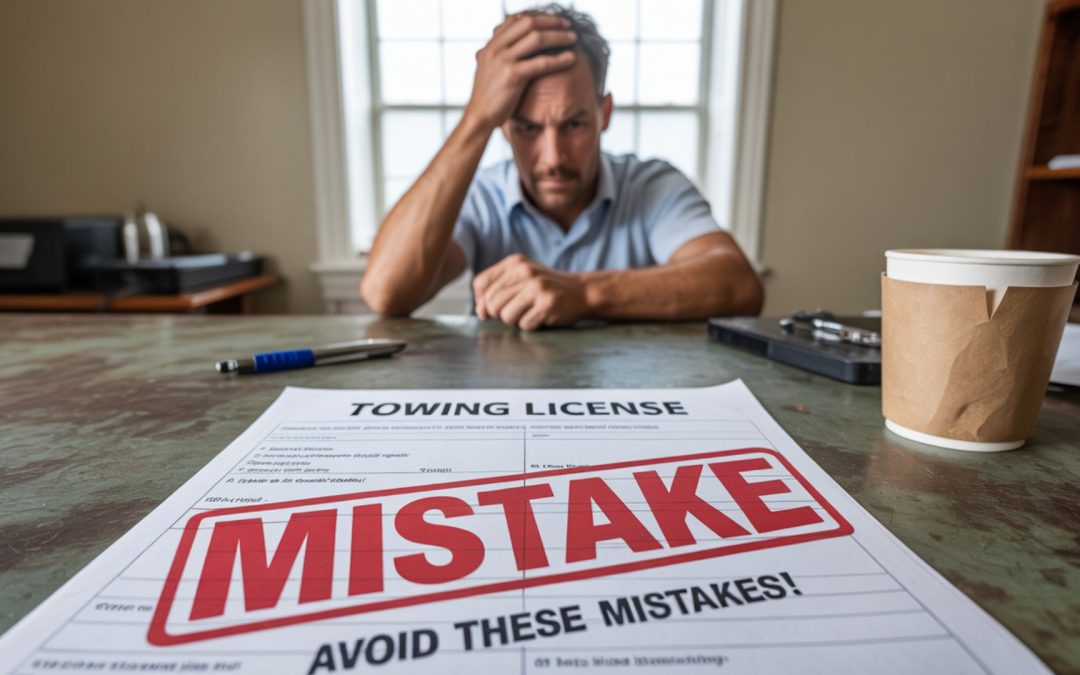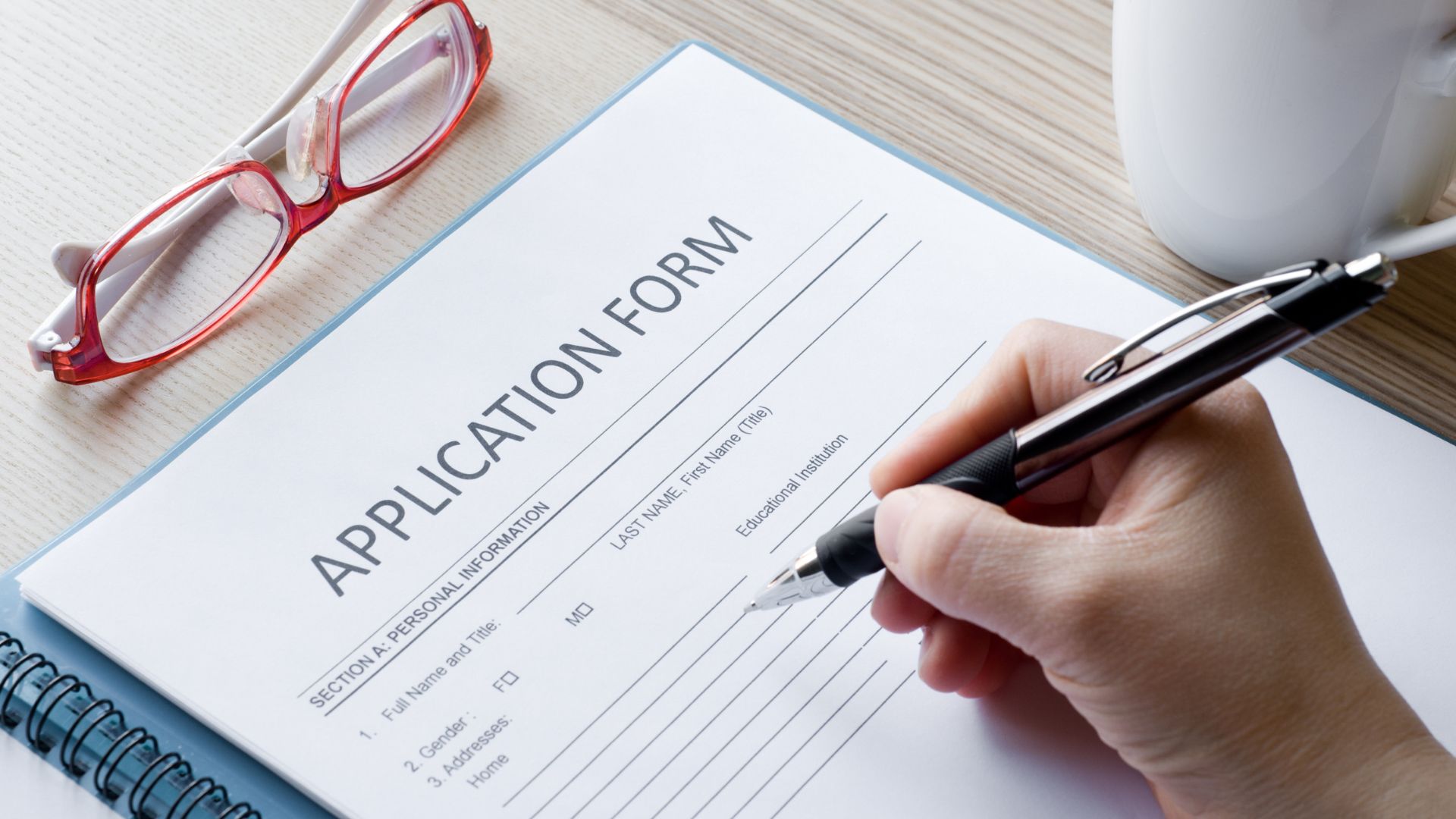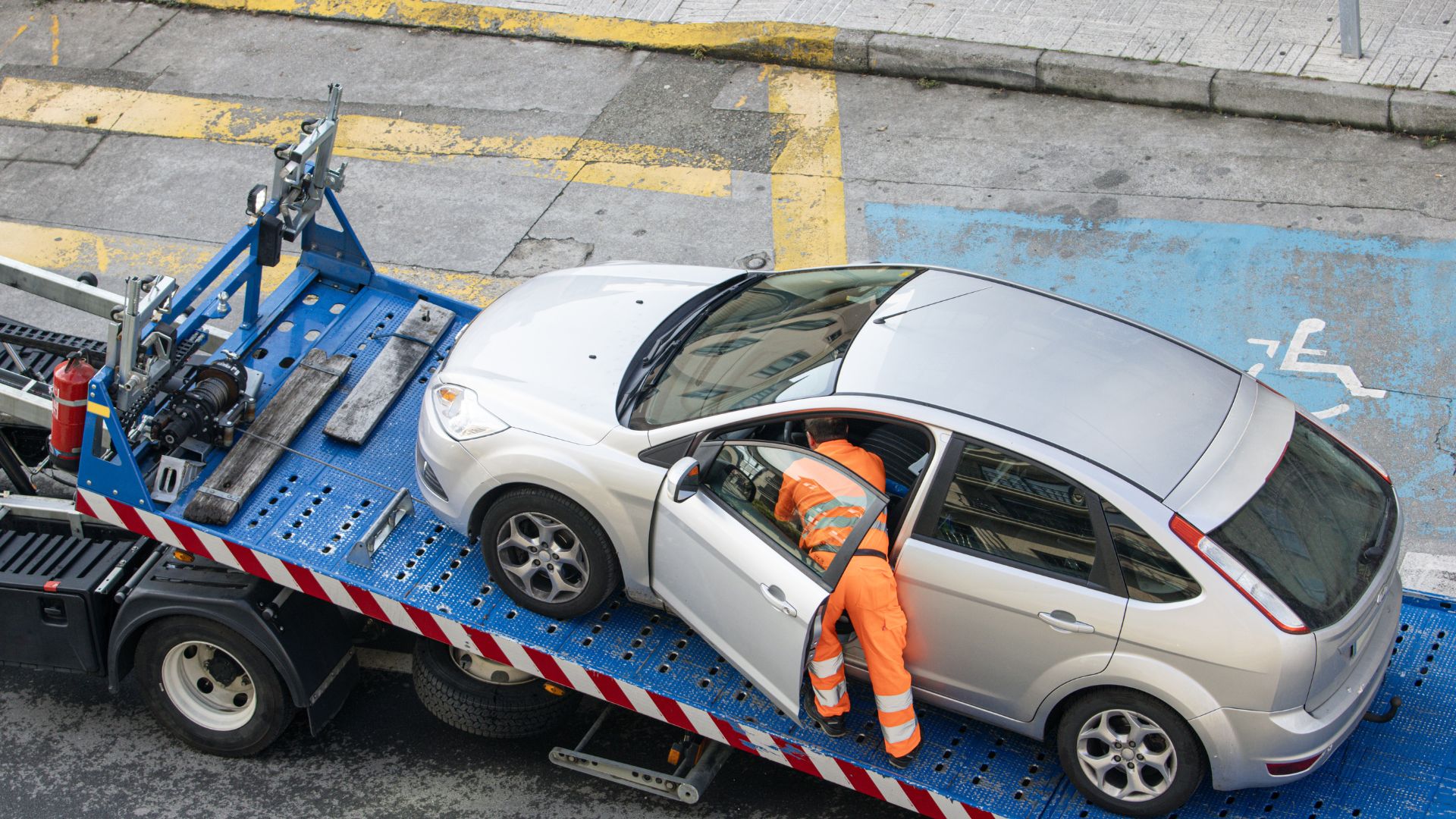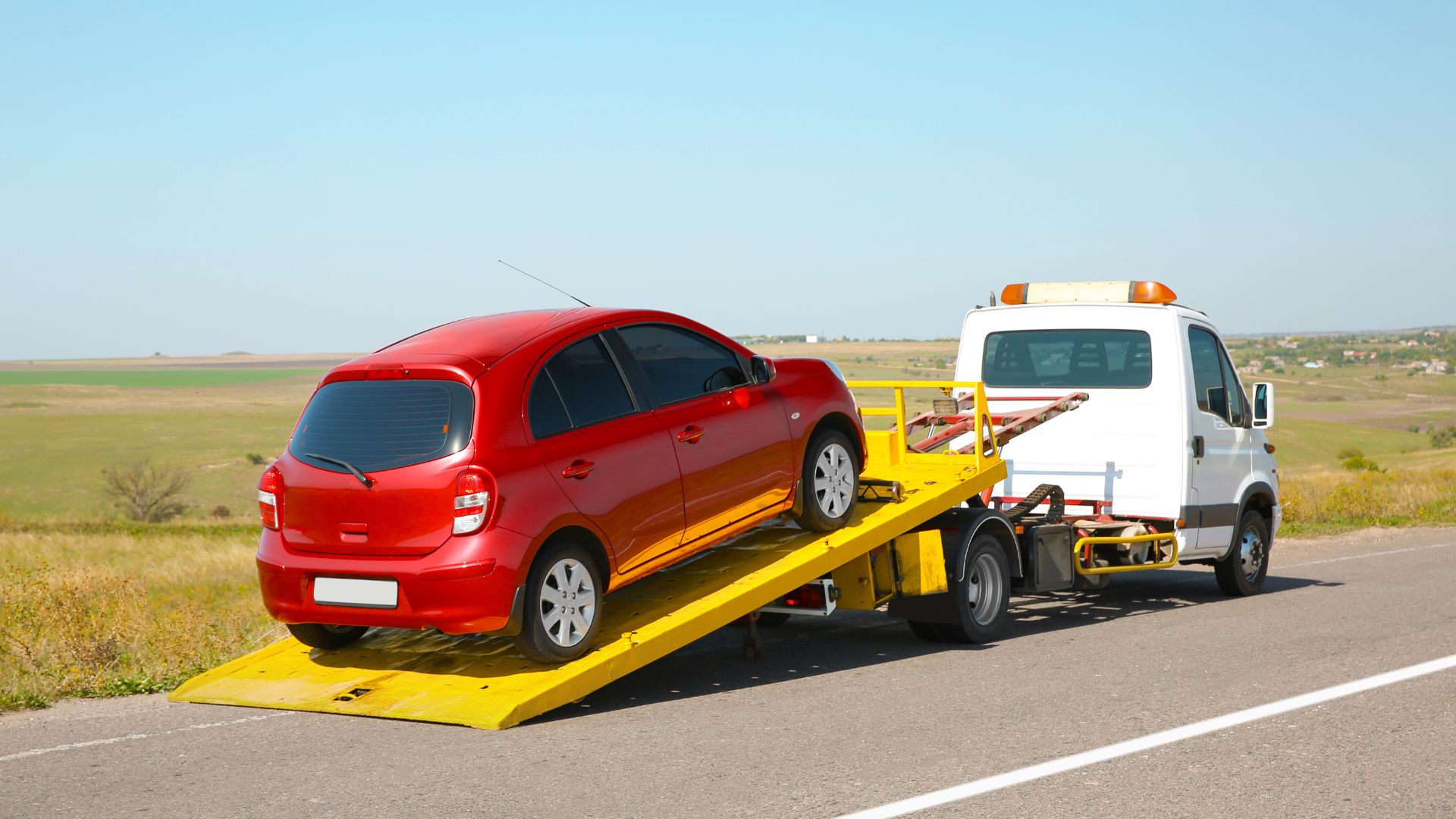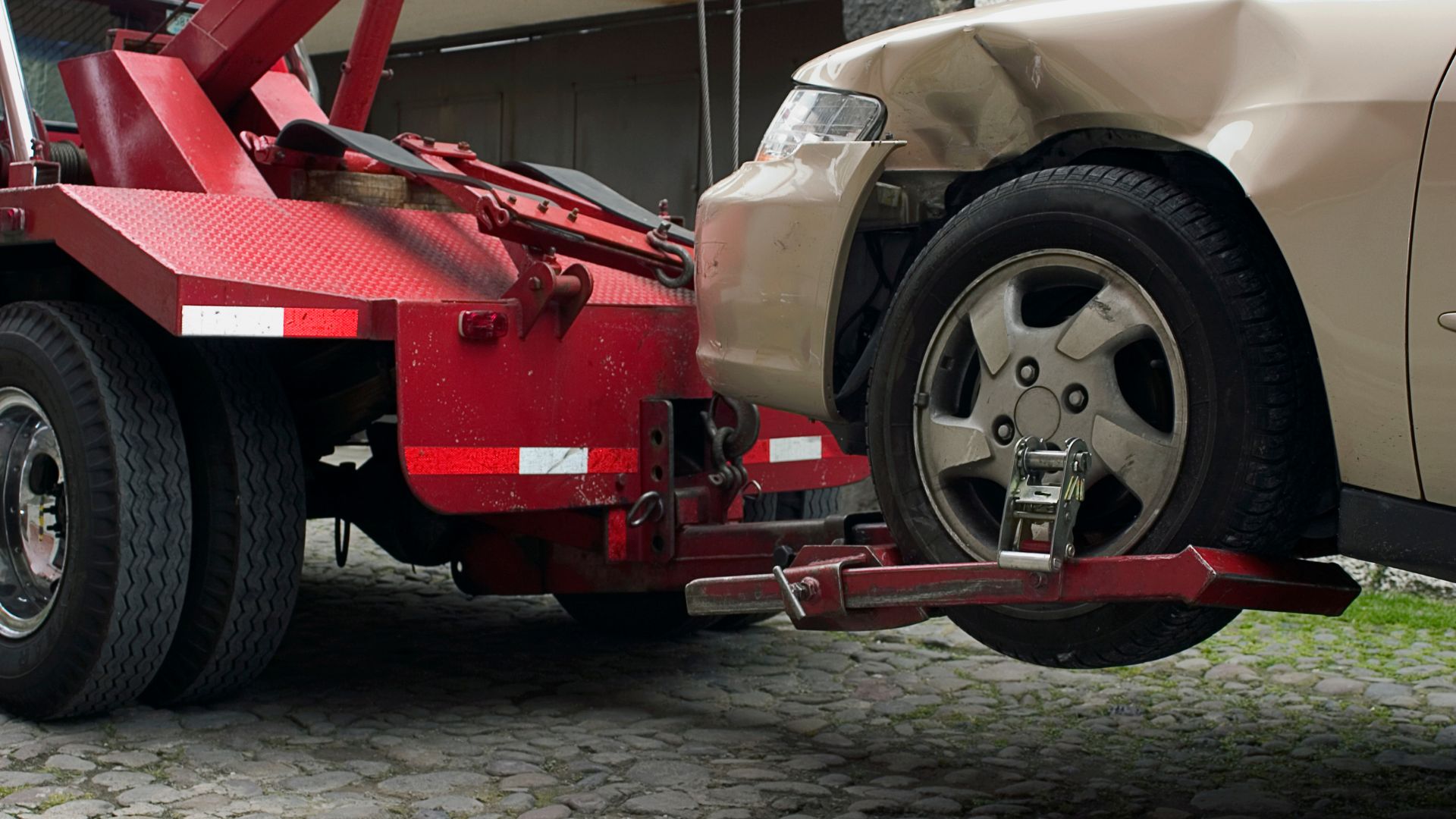Securing the proper credentials is a critical step for any towing business. The licensing process involves multiple requirements, forms, and deadlines that must be met to stay compliant with state regulations. Even small errors can delay approval or result in costly setbacks. By understanding where applicants often go wrong, you can better prepare for a successful submission. A proactive approach helps streamline the process and keeps your operations on track from the start. Get to know more about the common mistakes you can avoid.
Key Takeaways
- Conduct thorough research on state-specific towing license requirements to ensure compliance and avoid legal issues.
- Attention to detail in application forms and meeting vehicle compliance standards is crucial to prevent application delays and legal ramifications.
- Ongoing education, proper insurance coverage, and preparation for inspections are essential for maintaining a successful and compliant towing business.
Skipping Thorough Research on Licensing Requirements
One of the most critical steps in obtaining a towing license is conducting thorough research on state-specific requirements. Each state has its own set of regulations, and not understanding these can lead to severe legal issues for your towing business. For instance, different types of towing services may require varying licenses and permits depending on state regulations, including a Texas towing license.
Understanding the necessary documentation and fees for compliance is crucial. Lack of this knowledge can leave you unprepared, leading to unexpected obstacles. Reviewing the different types of towing licenses and eligibility can give you a clear picture of the credentials you need for your specific services, helping you avoid mismatches between your operations and your licensing.
Neglecting this foundational step can jeopardize your business from the start. Investing time to understand how to meet specific requirements can prevent future headaches and legal troubles.
Incomplete or Incorrect Application Forms
Filling out application forms can be a tedious process, but attention to detail is crucial. Common mistakes include failing to submit all necessary documents and inaccuracies in the provided information. Such errors can cause delays or even lead to the denial of your application.
Carefully reviewing your application forms can help you avoid these pitfalls. Ensure all required information is included and accurate, as incomplete documentation or errors can derail the entire process, causing frustration and loss of time. A meticulous approach to the application process will help you avoid these common mistakes.
Double-checking your forms and possibly having a second set of eyes review them can be beneficial. Taking extra time to ensure accuracy now can save significant trouble later.
Ignoring Vehicle Compliance Standards
Meeting specific safety and operational standards for your tow trucks is crucial for protecting your business and clients. Ignoring vehicle compliance standards can result in severe consequences, including fines and suspension of your towing license.
Two companies must:
- Ensure their motor vehicles comply with area-specific standards.
- Undergo periodic inspections to meet safety and regulatory requirements.
- Maintain proper documentation of all towing equipment to facilitate inspections and demonstrate compliance in the towing company tow truck industry.
Facility cleanliness and organization can significantly impact inspection outcomes. Regular self-inspections can help identify compliance issues before official inspections, allowing for proactive measures. This practice ensures compliance while promoting safety and efficiency in your operations.
Tow truck operators must maintain a valid driver’s license and ensure all vehicles meet required standards, including obtaining a tow truck permit and a commercial driver’s license. Law enforcement agencies often conduct random checks, and non-compliance can result in hefty fines or worse. Adhering to safety regulations and conducting regular vehicle inspections should be integral to your tow truck operations, especially for new drivers. A tow truck driver plays a crucial role in this process.
Overlooking Background Checks
Background checks are mandatory for the towing license application process due to the nature of the work, which involves handling valuable items and interacting with the public. A criminal background investigation is usually required for tow truck drivers to ensure safety and compliance with regulations.
Failing to complete the required background checks can result in delays or denial of your towing license. Background checks typically include verification of criminal history and driving records to assess qualifications. In addition, tow truck operators may be required to undergo drug testing.
Ensuring all background checks are completed before submitting your application will lead to a smoother licensing process and help build a positive reputation for your business.
Neglecting Continuing Education Requirements
Staying informed about industry developments through ongoing education and continuing education is crucial for maintaining compliance with evolving regulations. Regular education helps tow operators understand new safety regulations and ethical standards, enhancing service delivery and operational readiness.
Continuing education is often required to maintain a valid towing license, with operators needing to complete it every year or two, depending on state regulations. Continuous education on legal requirements ensures operators stay informed about changes in the law.
Participating in certified continuing education programs helps tow operators improve their skills and knowledge, ultimately contributing to the long-term success of their business.
Misunderstanding Insurance and Liability Coverage
Insurance and liability coverage are critical for operating a towing business. Liability insurance protects against potential claims and financial risks. Tow truck insurance must specifically cover the vehicles being transported, known as ‘on-hook insurance’.
Tow truck operators should consider the following regarding insurance coverage:
- Have liability coverage of at least $1 million.
- Be aware that inadequate insurance can lead to significant financial risks if an accident occurs while towing.
- Understand the types of vehicles being towed, as insurance needs may vary, especially for high-value cars.
Proper insurance coverage protects your business and demonstrates professionalism and reliability to your clients.
Missing License Renewal Deadlines
Renewing your towing license on time is crucial to avoid the suspension of business operations. Non-compliance with license renewal can result in the denial or revocation of operating certificates. Renewal of towing licenses typically occurs annually in many states.
Setting reminders well in advance can help keep track of renewal dates. Keeping licenses current is essential to avoid fines and maintain compliance with legal standards. Missing renewal deadlines can disrupt your business and lead to unnecessary complications.
If you operate in Texas, following a clear process like the one for renewing a tow operator license in Texas can ensure your renewal is handled efficiently, avoiding costly interruptions to your operations. Staying on top of your renewal deadline ensures uninterrupted operations and maintains your business license in good standing.
Underestimating the Importance of Proper Training
Proper training is fundamental to the long-term success of a towing business. Training programs for tow truck drivers cover essential components like vehicle transportation techniques, emergency response strategies, and effective customer interaction. Some jurisdictions mandate that towing operators obtain individual licenses for non-consent towing, which may involve initial training and continuing education.
Failure to comply with safety standards can lead to increased risks of accidents and injuries in towing operations. Tow truck operators and tow operators must adhere to both OSHA and state DOT regulations, which can vary significantly based on location. Acquiring a towing license demonstrates that operators have attained proficiency in accordance with industry standards.
Investing in proper training ensures operators are well-prepared to tackle various challenges, promoting safety and efficiency in their operations.
Not Consulting with Legal Experts
Navigating the complex regulations of the towing industry can be challenging. Consulting with legal experts helps business owners avoid potential legal issues. Engaging with licensed training providers can ensure the accurate completion of the licensing process.
Legal advice can also ensure proper insurance coverage for your business. Seeking expert advice helps avoid costly mistakes and ensures your towing business operates within legal boundaries, including aspects related to emergency towing.
Failing to Prepare for Inspections
Preparation for vehicle and facility inspections is essential for compliance with safety and regulatory standards. All towing vehicles must undergo regular inspections to meet these standards. Thorough preparation significantly influences the outcome of the towing licensing process.
Inspections of operational facilities and towing equipment are mandatory to ensure compliance with safety protocols and standards. Facility cleanliness, organization, and regular maintenance of emergency equipment can positively impact inspection results.
Thorough preparation for inspections ensures your towing business meets all regulatory requirements, promoting a safe and ensuring compliance operation.
Final Thoughts for a Smooth Licensing Process
Avoiding errors during the towing license application process is essential for preventing delays, fines, or rejections. By understanding common pitfalls and preparing all required documents in advance, applicants can navigate the process more efficiently. Staying organized and informed ensures you meet all regulatory requirements while keeping your business operations on schedule.
At State Approved Continuing Education, we provide the resources and training you need to secure your towing license in Texas without unnecessary setbacks. Our state-approved courses make it simple to meet education requirements, submit applications correctly, and maintain compliance so you can focus on running your business with confidence.
Frequently Asked Questions
What are some common mistakes in filling out towing license application forms?
To avoid delays or rejections in your towing license application, ensure you submit all required documents and double-check for any inaccuracies in the information provided. Attention to detail is essential for a smooth application process.
Why are background checks important for tow truck operators?
Background checks are crucial for tow truck operators as they help ensure safety and compliance with regulations, protecting both the operators and the clients they serve. This step is vital given the responsibility of handling valuable items.
What is the significance of continuing education for tow operators?
Continuing education is vital for tow operators as it ensures compliance with evolving regulations, enhances safety practices, and improves overall service quality. Staying updated through ongoing training is essential for professional growth in this field.
What type of insurance coverage is necessary for a towing business?
For a towing business, liability insurance is essential to protect against claims, and you should also have on-hook insurance to cover the vehicles being transported. This combination ensures that your business is safeguarded against potential risks.
How can missing license renewal deadlines affect a towing business?
Missing license renewal deadlines can severely impact your towing business by resulting in the suspension of operations and possible fines. It is crucial to adhere to these deadlines to maintain your operating certificates and continue serving your customers.

